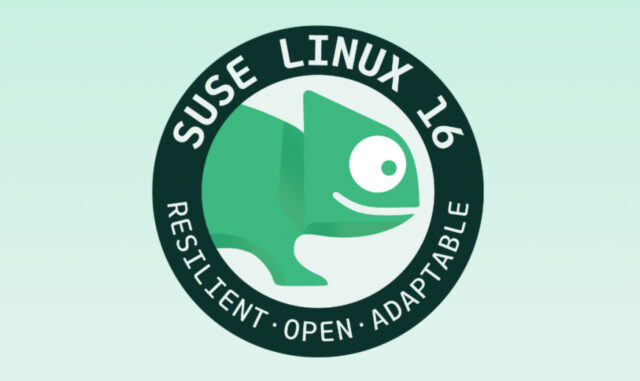SUSE brings agentic AI to enterprise Linux

SUSE has released SUSE Linux Enterprise 16, which it describes as the first enterprise Linux distribution to integrate agentic AI through the Model Context Protocol (MCP). The update aims to let operating systems interact more directly with AI models and external data sources.
The Model Context Protocol, introduced in 2024 by Anthropic, is an open standard for connecting large language models to tools and data. It defines a simple client-server structure that allows AI systems to request information or perform tasks across different applications in a consistent way. SUSE’s adoption of MCP is meant to make those capabilities available at the operating system level, without depending on a single AI provider.
SEE ALSO: Red Hat introduces Developer Lightspeed, an AI-driven assistant to streamline workflows
The new version, called SUSE Linux Enterprise Server (SLES) 16, includes MCP host and server components for this type of integration. It connects with any large language model provider, giving organizations flexibility in how they implement AI features. SUSE said the design follows open standards that can be expanded for future use.
“Today, every CIO and CTO needs to leverage AI to get more out of existing infrastructure, and this cannot come at the cost of being locked into a single ecosystem,” said Rick Spencer, GM of Business Critical Linux at SUSE. “Using AI with SUSE Linux Enterprise Server 16, IT leaders can drive operational efficiency without having to hire new teams or build a custom toolchain. SUSE is the first to deliver a built-in, open and extensible AI infrastructure directly within an enterprise Operating System (OS). This, combined with our historic commitment to security and compliance and an industry leading 16-year lifecycle, makes SUSE Linux Enterprise Server 16 the first enterprise Linux that solves for both immediate innovation and long-term stability.”
SUSE AI-assisted tools
The operating system introduces AI-assisted management tools through the Cockpit web console and command line, aimed at reducing manual maintenance. The MCP functionality is listed as a technical preview, meaning that it is still early in practical deployment.
SLES 16 includes other technical changes, such as reproducible builds to improve transparency, the ability to instantly roll back nearly any system modification, and a 16-year lifecycle that extends beyond the 2038 date limit. The security model has also moved from AppArmor to SELinux, and post-quantum cryptography algorithms have been added to core libraries.
The release family includes versions for SAP applications, high availability environments, and lightweight edge deployments. Each builds on the same base platform but is configured for its intended workload.
SUSE Linux Enterprise Server 16 will be available to customers and partners starting November 4, 2025.
While the integration of MCP makes it as one of the first enterprise operating systems to test built-in AI infrastructure at the core level, its usefulness in production environments will naturally depend on how organizations choose to apply it.
What do you think about SUSE Linux Enterprise 16’s AI integration? Let us know in the comments.
